Featured Articles
Popular Articles
-

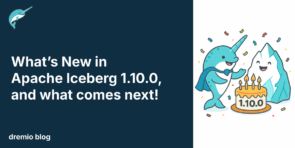 Dremio Blog: Open Data Insights
Dremio Blog: Open Data InsightsWhat’s New in Apache Iceberg 1.10.0, and what comes next!
-
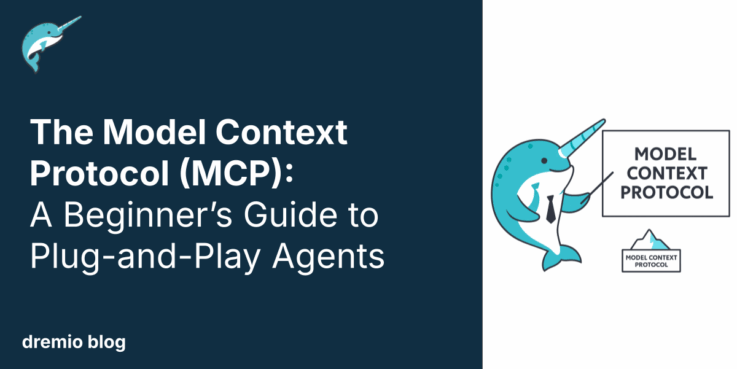
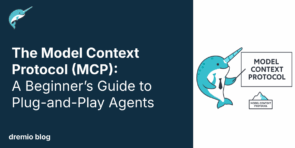 Dremio Blog: Various Insights
Dremio Blog: Various InsightsThe Model Context Protocol (MCP): A Beginner’s Guide to Plug-and-Play Agents
-
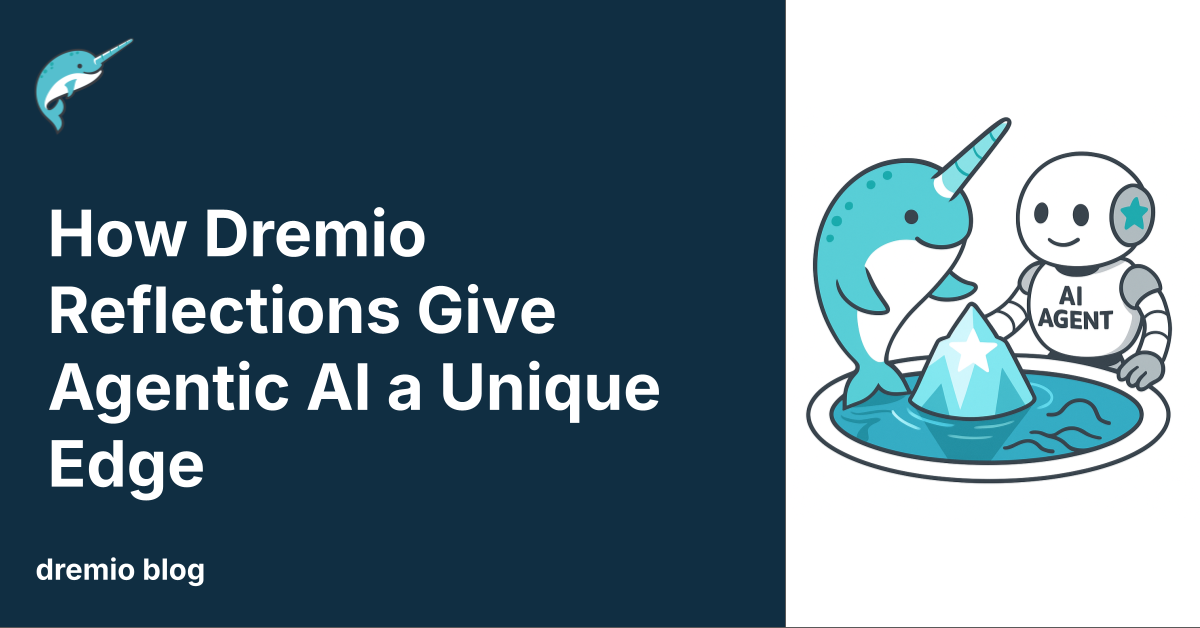
 Product Insights from the Dremio Blog
Product Insights from the Dremio BlogHow Dremio Reflections Give Agentic AI a Unique Edge
-

 Product Insights from the Dremio Blog
Product Insights from the Dremio BlogMCP & Dremio: Why a Standard Protocol and a Semantic Layer Matter for Agentic Analytics
Browse All Blog Articles
-
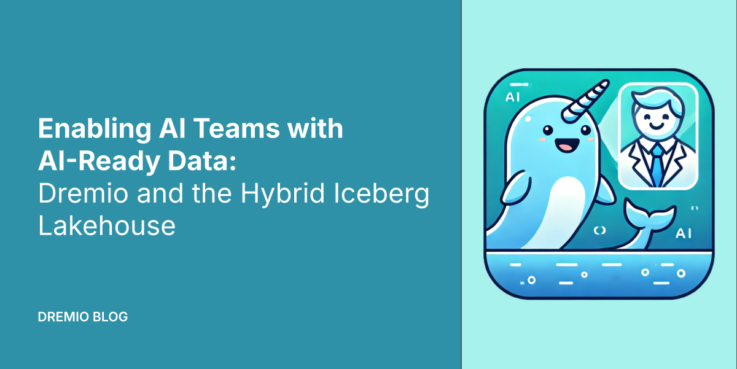
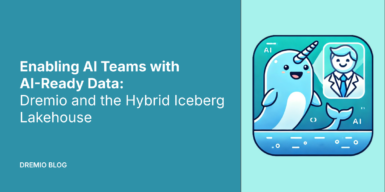 Product Insights from the Dremio Blog
Product Insights from the Dremio BlogEnabling AI Teams with AI-Ready Data: Dremio and the Hybrid Iceberg Lakehouse
For enterprises seeking to unlock the full potential of AI, Dremio provides the tools needed to deliver AI-ready data, enabling faster, more efficient AI development while ensuring governance, security, and compliance. With this powerful lakehouse solution, companies can future-proof their infrastructure and stay ahead in the rapidly evolving world of AI. -
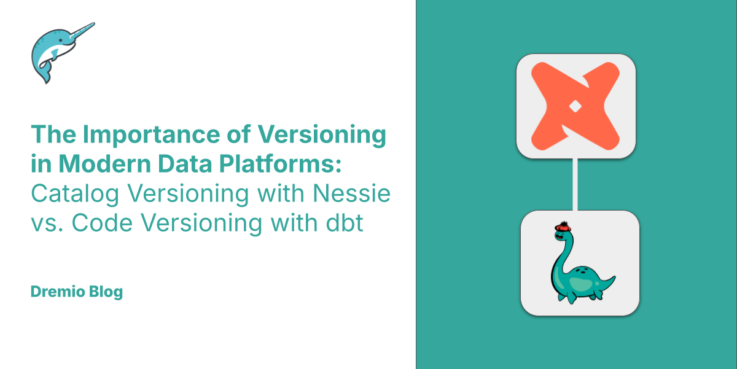
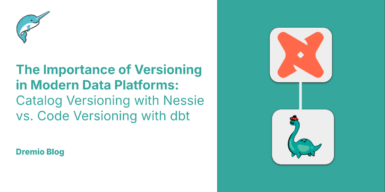 Dremio Blog: Open Data Insights
Dremio Blog: Open Data InsightsThe Importance of Versioning in Modern Data Platforms: Catalog Versioning with Nessie vs. Code Versioning with dbt
Catalog versioning with Nessie and code versioning with dbt both serve distinct but complementary purposes. While catalog versioning ensures the integrity and traceability of your data, code versioning ensures the collaborative, flexible development of the SQL code that transforms your data into actionable insights. Using both techniques in tandem provides a robust framework for managing data operations and handling inevitable changes in your data landscape. -
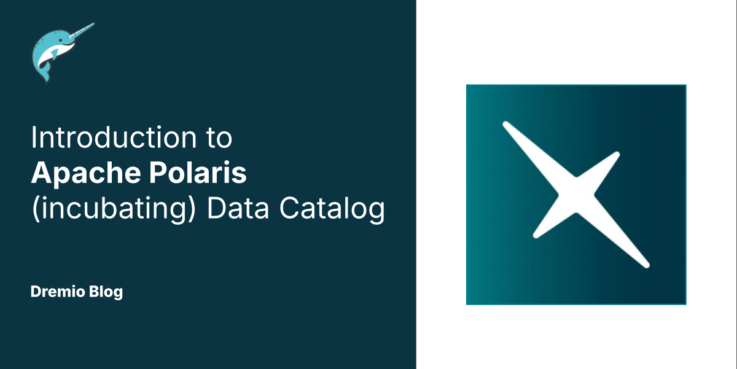
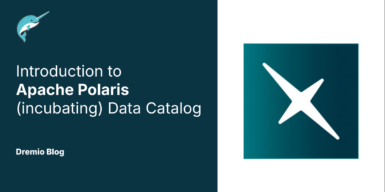 Dremio Blog: Open Data Insights
Dremio Blog: Open Data InsightsIntroduction to Apache Polaris (incubating) Data Catalog
Incorporating the Polaris Data Catalog into your Data Lakehouse architecture offers a powerful way to enhance data management, improve performance, and streamline data governance. The combination of Polaris's robust metadata management and Iceberg's scalable, efficient table format makes it an ideal solution for organizations looking to optimize their data lakehouse environments. -
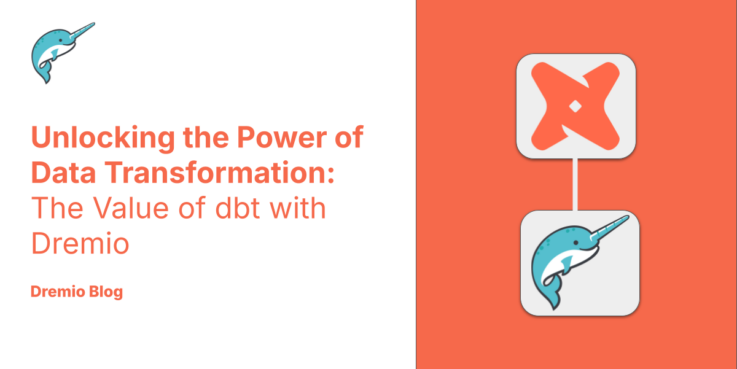
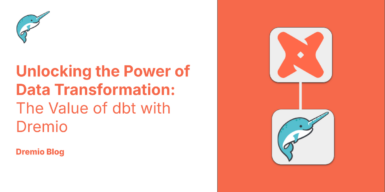 Dremio Blog: Partnerships Unveiled
Dremio Blog: Partnerships UnveiledUnlocking the Power of Data Transformation: The Value of dbt with Dremio
The combination of dbt and Dremio creates a powerful, agile data transformation pipeline. With dbt’s ability to standardize and automate transformations, and Dremio’s unified data platform optimizing and accelerating queries, organizations can unlock the full potential of their data. -
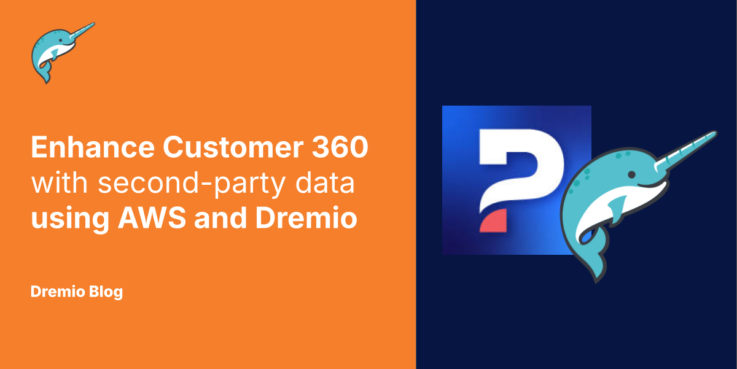
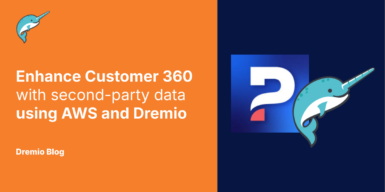 Dremio Blog: Partnerships Unveiled
Dremio Blog: Partnerships UnveiledEnhance Customer 360 with second-party data using AWS and Dremio
Tools like Dremio are critical for breaking down data silos and providing real-time access to valuable insights. By simplifying data integration and making it actionable, these capabilities empower teams to make data-driven decisions and collaborate more effectively, ultimately delivering superior customer experiences and driving growth. -
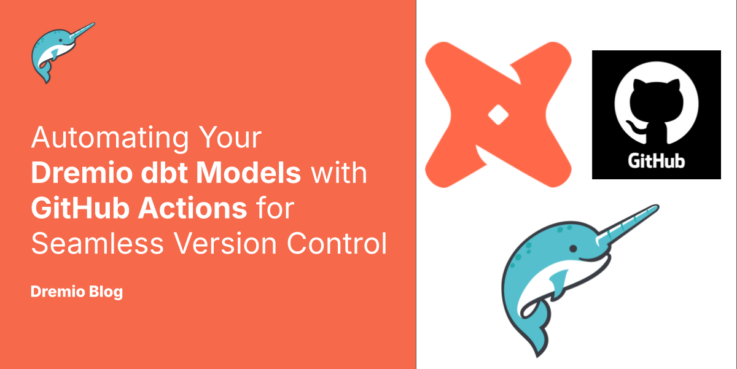
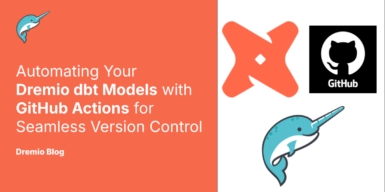 Dremio Blog: Partnerships Unveiled
Dremio Blog: Partnerships UnveiledAutomating Your Dremio dbt Models with GitHub Actions for Seamless Version Control
By integrating GitHub Actions into your dbt and Dremio workflows, you’ve unlocked a powerful, automated CI/CD pipeline for managing and version-controlling your semantic layer. -
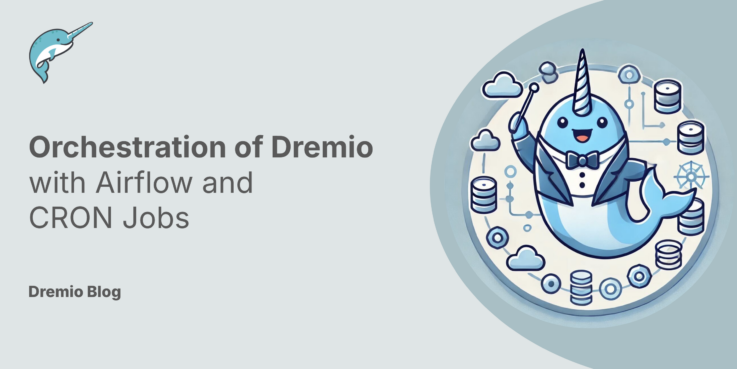
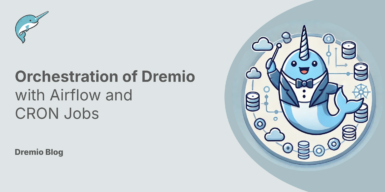 Product Insights from the Dremio Blog
Product Insights from the Dremio BlogOrchestration of Dremio with Airflow and CRON Jobs
By embracing the right orchestration tools, you can automate your data workflows, save time, reduce errors, and scale your data platform with ease. So, whether you're managing daily queries or orchestrating complex data pipelines, Airflow combined with Dremio is the way forward for efficient and reliable orchestration. -
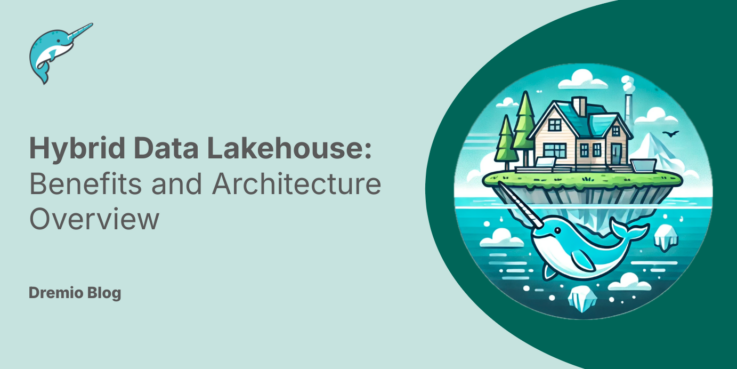
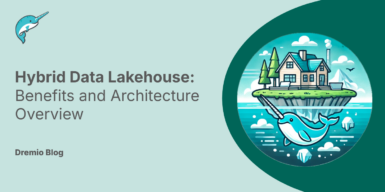 Dremio Blog: Open Data Insights
Dremio Blog: Open Data InsightsHybrid Data Lakehouse: Benefits and Architecture Overview
The hybrid data lakehouse represents a significant evolution in data architecture. It combines the strengths of cloud and on-premises environments to deliver a versatile, scalable, and efficient solution for modern data management. Throughout this article, we've explored the key features, benefits, and best practices for implementing a hybrid data lakehouse, highlighting Dremio's role as a central component of this architecture. -
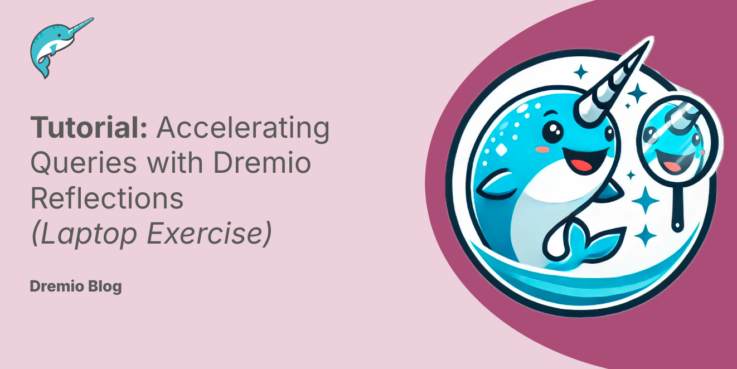
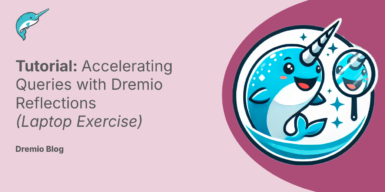 Product Insights from the Dremio Blog
Product Insights from the Dremio BlogTutorial: Accelerating Queries with Dremio Reflections (Laptop Exercise)
In this tutorial, we demonstrated how to set up Dremio, promote and format a dataset, create a complex query, and then use an Aggregate Reflection to optimize that query for better performance. With this approach, you can easily scale your data analytics workload while keeping query times low. -
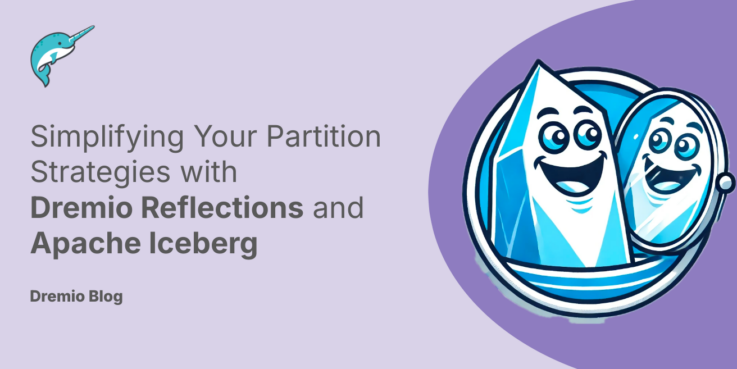
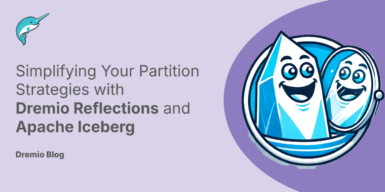 Product Insights from the Dremio Blog
Product Insights from the Dremio BlogSimplifying Your Partition Strategies with Dremio Reflections and Apache Iceberg
With Dremio and Apache Iceberg, managing partitioning and optimizing queries becomes far simpler and more effective. By leveraging Reflections, Incremental Reflections, and Live Reflections, you can maintain fresh data, reduce the complexity of partitioning strategies, and optimize for different query plans without sacrificing performance. Using Dremio’s flexible approach, you can balance keeping raw tables simple and ensuring that frequently run queries are fully optimized. -
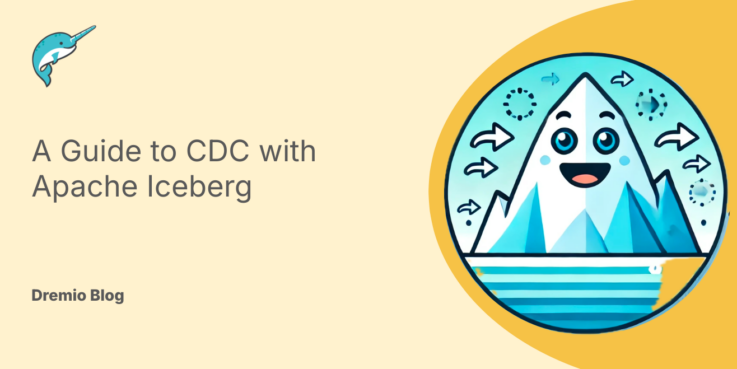
 Dremio Blog: Open Data Insights
Dremio Blog: Open Data InsightsA Guide to Change Data Capture (CDC) with Apache Iceberg
We'll see that because of Iceberg's metadata, we can efficiently derive table changes, and due to its efficient transaction and tool support, we can process those changes effectively. Although, there are different CDC scenarios so let's cover them. -
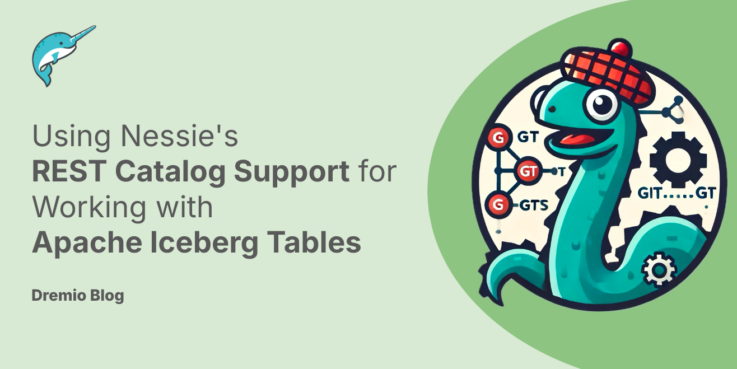
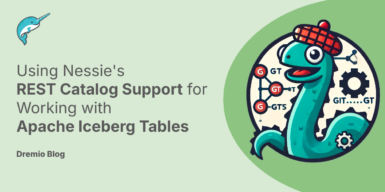 Dremio Blog: Open Data Insights
Dremio Blog: Open Data InsightsUsing Nessie’s REST Catalog Support for Working with Apache Iceberg Tables
With the introduction of REST catalog , managing and interacting with Apache Iceberg catalogs has been greatly simplified. This shift from client-side configurations to server-side management offers many benefits, including better security, easier maintenance, and improved scalability. -
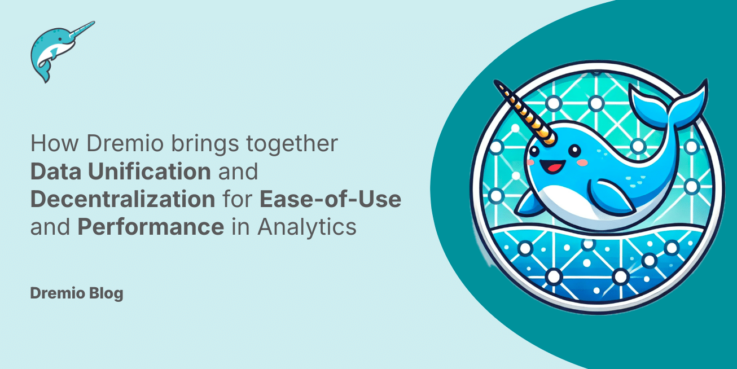
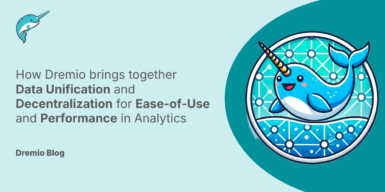 Dremio Blog: Open Data Insights
Dremio Blog: Open Data InsightsHow Dremio brings together Data Unification and Decentralization for Ease-of-Use and Performance in Analytics
By embracing both data unification and decentralization, organizations can achieve a harmonious balance that leverages the strengths of each approach. Centralized access ensures consistency, security, and ease of governance, while decentralized management allows for agility, domain-specific optimization, and innovation. -
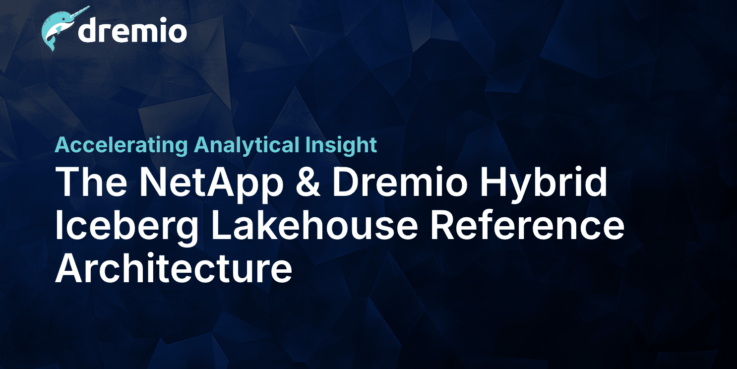
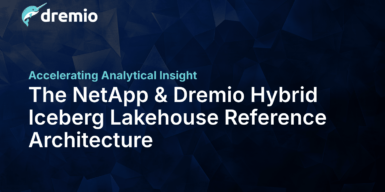 Dremio Blog: Various Insights
Dremio Blog: Various InsightsAccelerating Analytical Insight – The NetApp & Dremio Hybrid Iceberg Lakehouse Reference Architecture
Organizations are constantly seeking ways to optimize data management and analytics. The Dremio and NetApp Hybrid Iceberg Lakehouse Reference Architecture brings together Dremio’s Unified Lakehouse Platform and NetApp’s advanced data storage solutions to create a high-performance, scalable, and cost-efficient data lakehouse platform. With this solution combining NetApp’s advanced storage technologies with Dremio’s high-performance lakehouse platform, […] -
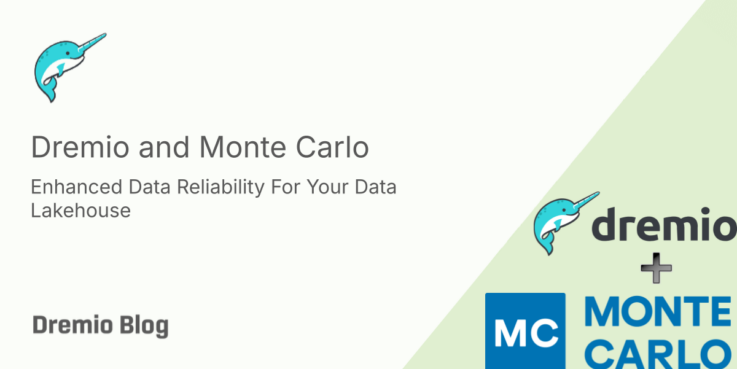
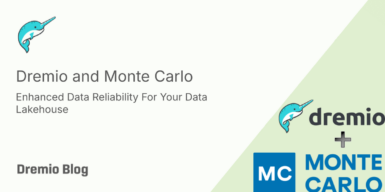 Dremio Blog: Partnerships Unveiled
Dremio Blog: Partnerships UnveiledDremio and Monte Carlo – Enhanced Data Reliability For Your Data Lakehouse
Integrating Monte Carlo with Dremio’s Unified Lakehouse Platform provides a robust framework for implementing advanced data observability practices in a data lakehouse environment. By leveraging this powerful combination, organizations can significantly improve their data reliability, catch issues early, and maintain the integrity of their data assets.
- « Previous Page
- 1
- …
- 6
- 7
- 8
- 9
- 10
- …
- 32
- Next Page »



